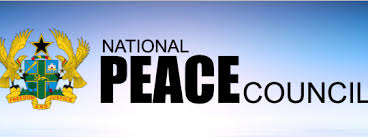National Peace Council Lacking Skills in Managing Key Peace Issues-William Sarpong Writes
However, the Council seems narrowly focused on electoral matters, specifically the signing of peace agreements by political parties. Even in this area, the Council has been criticized for perceived selective justice, with some political parties accusing it of bias and questioning its relevance.

It is becoming increasingly evident that the National Peace Council may be struggling with the very mandate it was established to uphold—ensuring peace in Ghana. Despite its role as the primary institution responsible for maintaining national harmony, the Council itself appears to be facing internal challenges, raising questions about its effectiveness.
Currently, numerous issues threatening Ghana’s peace require urgent intervention from the Peace Council. However, the Council seems narrowly focused on electoral matters, specifically the signing of peace agreements by political parties. Even in this area, the Council has been criticized for perceived selective justice, with some political parties accusing it of bias and questioning its relevance.
- Advertisement -
One of the major peace-threatening issues being overlooked is the increasing number of chieftaincy disputes across the country. These conflicts are eroding the fragile peace that many communities still enjoy, yet the Peace Council remains largely silent.
- Advertisement -
Another pressing issue is the rampant double sale of land by unscrupulous traditional rulers. This practice has given rise to violent land guard activities, disturbing the peace in many areas. The Peace Council, however, has not only failed to address these issues but has also been criticized for not even condemning such practices. Innocent lives might have been saved if the Council had intervened by addressing the chiefs involved in these fraudulent land transactions.
There is also concern about the Peace Council’s recent interactions with the media. A recent event in Accra, meant to engage editors from various media houses, has come under scrutiny for excluding certain editors. Such selective invitations raise doubts about the Council’s understanding of the diverse influence of media houses across political, tribal, and religious lines.
It appears that the Public Relations Officers of the Peace Council bear some responsibility for this oversight. Instead of consulting with their colleagues or seeking advice on media representation, they chose to invite only a select few, further straining the Council’s relations with the media.
- Advertisement -
Moreover, the Council’s approach to handling political party engagements has also been questioned. For instance, the National Democratic Congress (NDC) has expressed reluctance to sign any peace accord for the upcoming 2024 general elections. The party, led by National Chairman Johnson Asiedu Nketia, insists that President Akufo-Addo must openly commit to respecting the election results and that recommendations from the Ayawaso West Wuogon by-election violence investigation must be fully implemented.
The NDC has also called for the prosecution of those responsible for violence during the 2020 elections and an investigation into the disappearance of IT equipment from the Electoral Commission’s warehouse.
These demands highlight the Peace Council’s perceived ineffectiveness in addressing past electoral grievances. The fact that the NDC feels compelled to raise these issues publicly suggests a lack of confidence in the Council’s ability to manage future peace initiatives effectively.
In conclusion, growing criticisms suggest that the National Peace Council may indeed be lacking the necessary skills and strategies to address the pressing peace issues facing Ghana today.
Source:dailydemocratnewsonline.com
- Advertisement -



